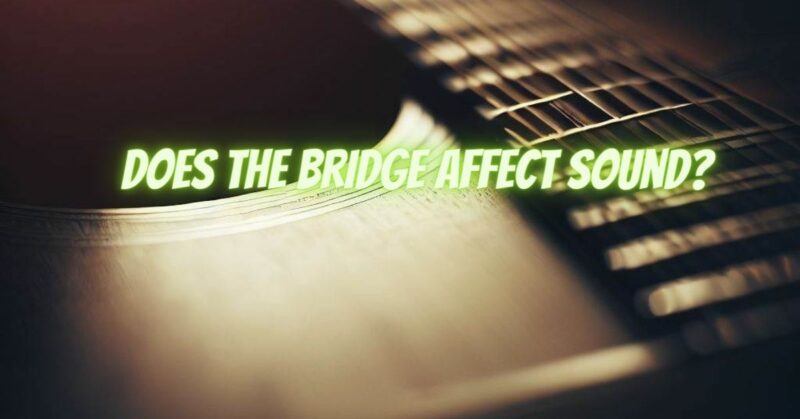Yes, the bridge affects the sound of a guitar in a number of ways. The bridge is responsible for transmitting the vibration of the strings to the body of the guitar, which is what produces the sound. The type of bridge, the materials used, and the construction of the bridge can all have a significant impact on the tone and sustain of the guitar.
Here are some of the ways in which the bridge affects the sound of a guitar:
- Material: The material of the bridge can affect the tone of the guitar in a number of ways. For example, maple bridges are known for producing a bright and clear sound, while rosewood bridges are known for producing a warmer and more mellow sound.
- Construction: The construction of the bridge can also affect the tone of the guitar. For example, bridges with a lot of mass will tend to produce a warmer sound, while bridges with less mass will tend to produce a brighter sound.
- Type of bridge: The type of bridge can also have a significant impact on the tone of the guitar. For example, acoustic guitars typically have fixed bridges, which are attached to the body of the guitar. Electric guitars, on the other hand, typically have floating bridges, which are not attached to the body of the guitar. Floating bridges can produce a more resonant sound, but they can also be more difficult to keep in tune.
In addition to affecting the tone of the guitar, the bridge can also affect the sustain of the guitar. Sustain is the length of time that a note rings out after it is plucked or strummed. A bridge with a lot of mass will tend to produce more sustain, while a bridge with less mass will tend to produce less sustain.
The overall impact of the bridge on the sound of the guitar will vary depending on the type of guitar, the strings that are being used, and the player’s preferences. However, it is important to note that the bridge is just one of many factors that affect the tone and sustain of a guitar.
Here are some tips for choosing the right bridge for your guitar:
- Consider the type of guitar you have. Some guitars are better suited to certain types of bridges than others.
- Consider the strings you are using. Different types of strings will sound different with different types of bridges.
- Consider your personal preferences. Do you want a brighter or warmer sound?
- Experiment with different types of bridges to see what sounds best to you.
If you are not sure what type of bridge to get, it is always best to consult with a qualified guitar technician.


